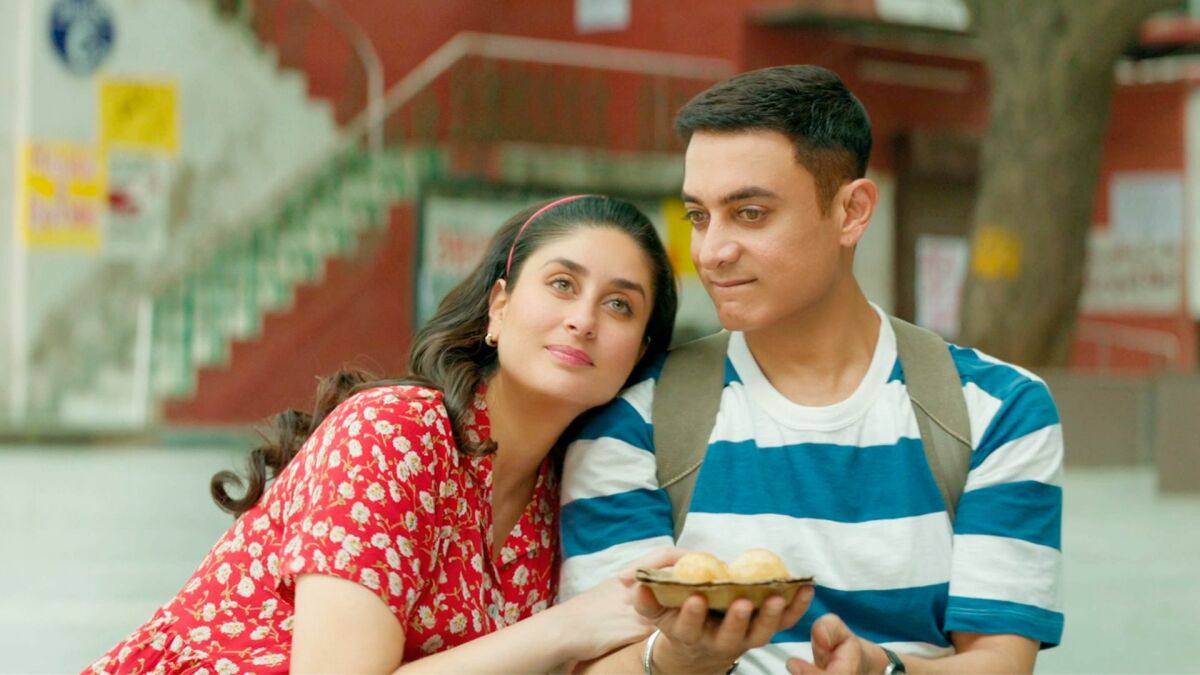Entertainment
‘Laal Singh Chaddha’ review: A poignant Bollywood remake of ‘Forrest Gump’

Tom Hanks’ Forrest Gump was released 28 years ago, transforming “from film to phenomenon” since landing in cinemas in 1994. Robert Zemeckis’ film, based on Winston Groom’s novel, strung together themes of redemption, tradition, and hope, to create the sweet, iconic pop culture moment that would win hearts across countries and generations.
Laal Singh Chaddha (LSC), Bollywood’s adaptation, is faithful to its roots; there’s a similar, tear-inducing sweetness to the Aamir Khan-starring film. Directed by Advait Chandan and released through Paramount, the movie follows Laal (Khan) as he unwittingly finds himself in the midst of pivotal events in Indian history (like Forrest living through American history), oblivious to the magnitudes of what he witnesses and yet a key player throughout.
The bulk of the story takes place on a moving train, as Laal, an Indian-Sikh, unveils his life story to fellow passengers who are at once reluctant and enthralled. Viewers of the film may feel similarly, particularly given recent press: some domestic critics have delivered a lukewarm response to the movie; threats of boycotting LSC have emerged since before its release, prompted by social media users and leading #BoycottLaalSinghChaddha to trend on Twitter. This is largely due to Khan’s articulation about religious intolerance in India, following his 2015 movie PK that sparked widespread protests by Hindu nationalists.
LSC may suffer from these challenges commercially or otherwise. But simply as a piece of cinema, this universally relevant film deserves to be watched by a global audience. If nothing else, there’s a level of curiosity such an ambitious project evokes. How does a quintessentially American movie translate to the Indian landscape?

Young Laal (Ahmad Ibn Umar) and his mother (Mona Singh).
Credit: Paramount Pictures
There aren’t many surprises when it comes to the plot of this Bollywood remake, but its strengths are rooted elsewhere. With Atul Kulkarni adapting Eric Roth’s screenplay, LSC‘s most overt adjustments come mainly in the form of language and culture. The script oscillates between replicating and remixing the fundamentals of Forrest Gump: the floating feather, the box of sweets (Forrest’s chocolates become Laal’s gol gappe, a common Indian snack), the running scenes, and the narrator’s childhood love.
In the adaptation, Laal’s heart lies with Rupa, played by Kareena Kapoor, who is wonderfully at ease in the role. Rupa’s story is most divergent from that of anything in the American film. There, her counterpart (Jenny, played by Robin Wright) has her life shaped by hippie-culture, drugs, and the distinctive free-love period in America’s history. This isn’t the same for Rupa, who instead finds herself in the tumultuous, greed-and-violence-driven Bollywood of the ’90s. For both, there are elements of tragedy but Rupa has been rewritten for Indian audiences, rendering her storyline both poignant and fresh.

Kareena Kapoor and Aamir Khan as Rupa and Laal.
Credit: Paramount Pictures
As protagonist Laal, Khan at times veers into sketch-like moments in his portrayal of the character, but ultimately delivers an impressive range of emotions, and growth. The character’s innocence is at first overly earnest and deliberate but this later becomes convincing, with Khan sprinkling notes of comedy and depth into his performance. Khan seems to find resonance with Laal as the movie persists, and much of his power as an actor is shown in the iconic running vignettes, which are interspersed throughout the film, and toward the heart-wrenching conclusion as Laal reaches fatherhood.

A sweet spin on Forrest Gump’s box of chocolates.
Credit: Paramount Pictures
There are other positives to the film that are in danger of being taken for granted. If LSC is to considered as merely a Forrest Gump remake, its other attributes — cinematography, dialogue, performances — will be overlooked. This likelihood is perhaps a result of just how rooted the film is in its origin. But if watched as a standalone, as a Bollywood offering, there is much to appreciate. Its portrayal of India, from the country’s multi-layered cultures and religions, to its startling landscape, is spectacular in itself. Another highlight is a delightful cameo by Khan’s fellow actor, Shah Rukh Khan.

Rupa’s story is most different to that of Jenny’s in the original.
Credit: Paramount Pictures
Here is where LSC becomes an Indian film, or rather, a film in its own right. It may not be as nuanced as Khan’s previous blockbusters, including the controversial PK, but it holds the moral messaging that underscores so many of his films. Throughout, there is a sense of pride in India, intertwined with a plea for tolerance and learning from history.
Laal Singh Chaddha is an adaptation that has been years in the making, and its efforts show. From the very beginning, the movie is clear in its intentions, paying wholehearted respect to Forrest Gump while finding its own path. This may result in some saturated dialogue and emotionally manipulative scenes, but such features are not only a facet of Bollywood but of the film’s underlying charm. If you’re going to attempt to adapt one of the most famous films of all time, this is how to do it.
Laal Singh Chaddha is now showing in cinemas.
-

 Entertainment7 days ago
Entertainment7 days agoHands-on with the Claude AI app: It’s pleasant to use, but janky
-

 Entertainment5 days ago
Entertainment5 days agoApple Watch Series 9 vs. SE: A smartwatch skeptic tested both for 13 days
-

 Business7 days ago
Business7 days agoHaun Ventures is riding the bitcoin high
-

 Entertainment6 days ago
Entertainment6 days ago5 essential gadgets for turning your home into a self-care sanctuary
-

 Business4 days ago
Business4 days agoGoogle lays off workers, Tesla cans its Supercharger team and UnitedHealthcare reveals security lapses
-

 Entertainment5 days ago
Entertainment5 days agoThe greatest films on Prime Video right now
-

 Business6 days ago
Business6 days agoGoogle dubs Epic’s demands from its antitrust win ‘unnecessary’ and ‘far beyond the scope’ of the verdict
-

 Business6 days ago
Business6 days agoApple: pay attention to emerging markets, not falling China sales






















